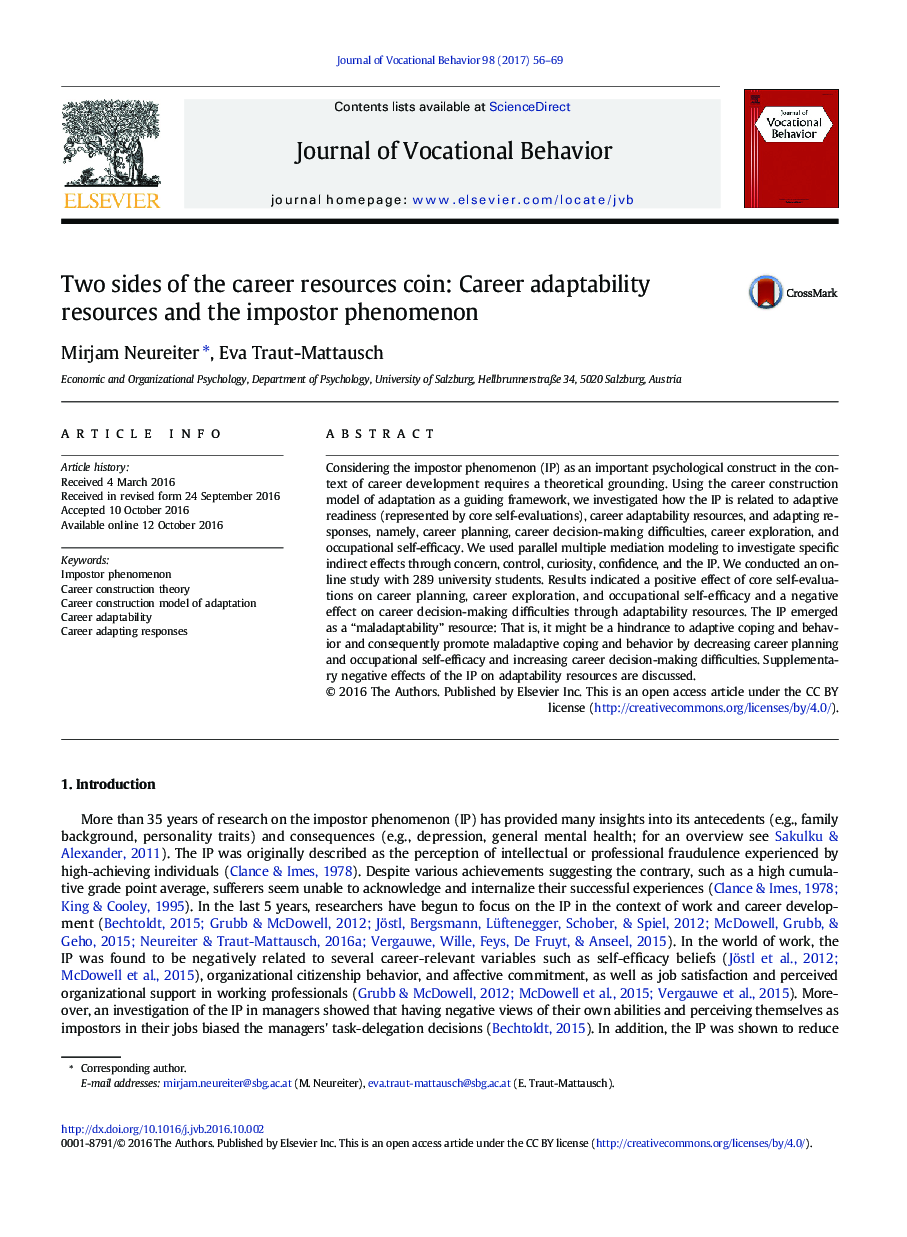| Article ID | Journal | Published Year | Pages | File Type |
|---|---|---|---|---|
| 5035169 | Journal of Vocational Behavior | 2017 | 14 Pages |
â¢Postulates a model based on career construction theory (CCT) for the impostor phenomenon (IP).â¢Examines the direct effects of adaptive readiness on adapting responses.â¢Identifies specific indirect effects of career adaptability resources and the IP.â¢Compares simple and multiple parallel mediation analyses.â¢Offers theoretical and practical implication regarding CCT and the IP.
Considering the impostor phenomenon (IP) as an important psychological construct in the context of career development requires a theoretical grounding. Using the career construction model of adaptation as a guiding framework, we investigated how the IP is related to adaptive readiness (represented by core self-evaluations), career adaptability resources, and adapting responses, namely, career planning, career decision-making difficulties, career exploration, and occupational self-efficacy. We used parallel multiple mediation modeling to investigate specific indirect effects through concern, control, curiosity, confidence, and the IP. We conducted an online study with 289 university students. Results indicated a positive effect of core self-evaluations on career planning, career exploration, and occupational self-efficacy and a negative effect on career decision-making difficulties through adaptability resources. The IP emerged as a “maladaptability” resource: That is, it might be a hindrance to adaptive coping and behavior and consequently promote maladaptive coping and behavior by decreasing career planning and occupational self-efficacy and increasing career decision-making difficulties. Supplementary negative effects of the IP on adaptability resources are discussed.
